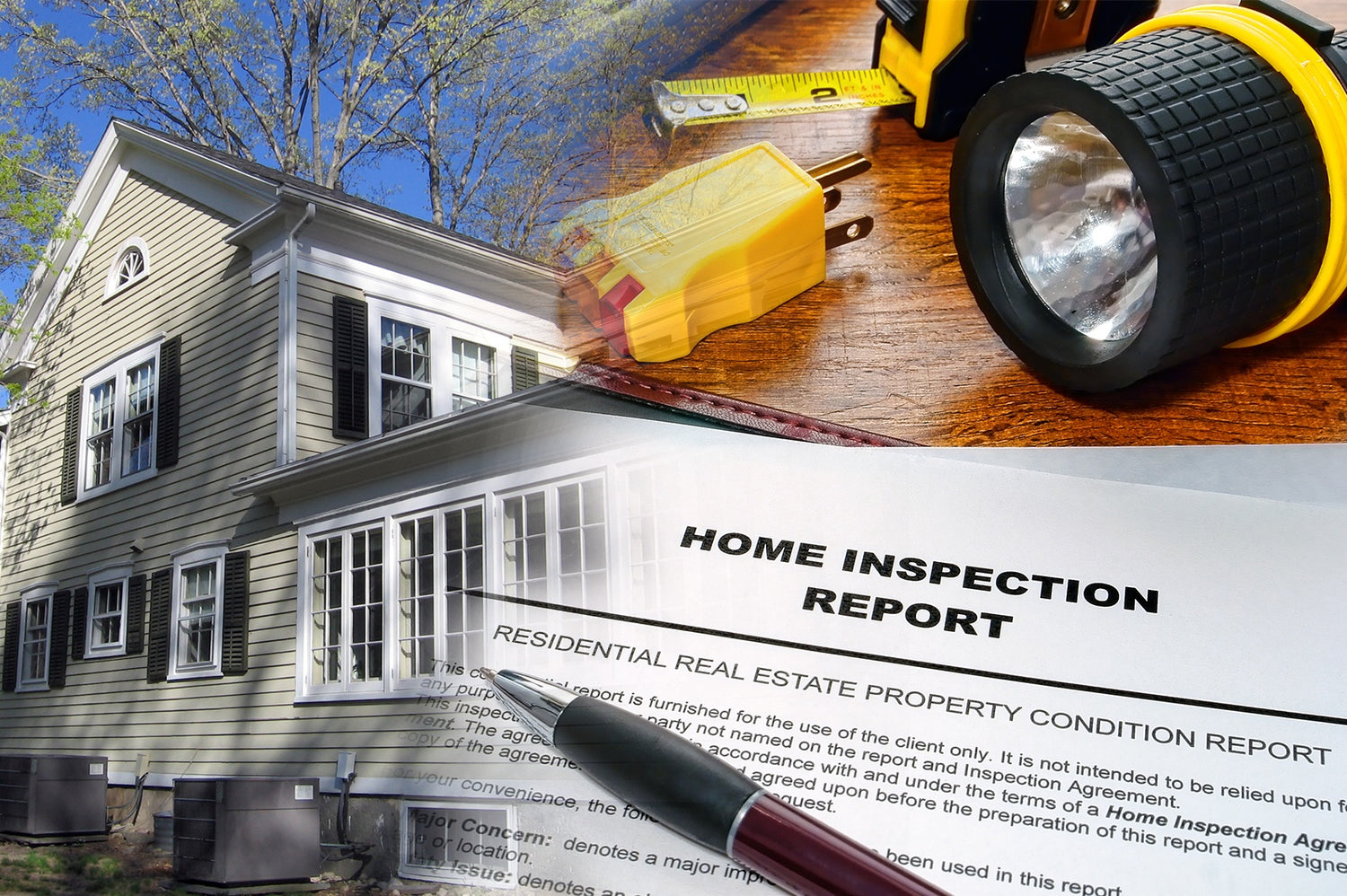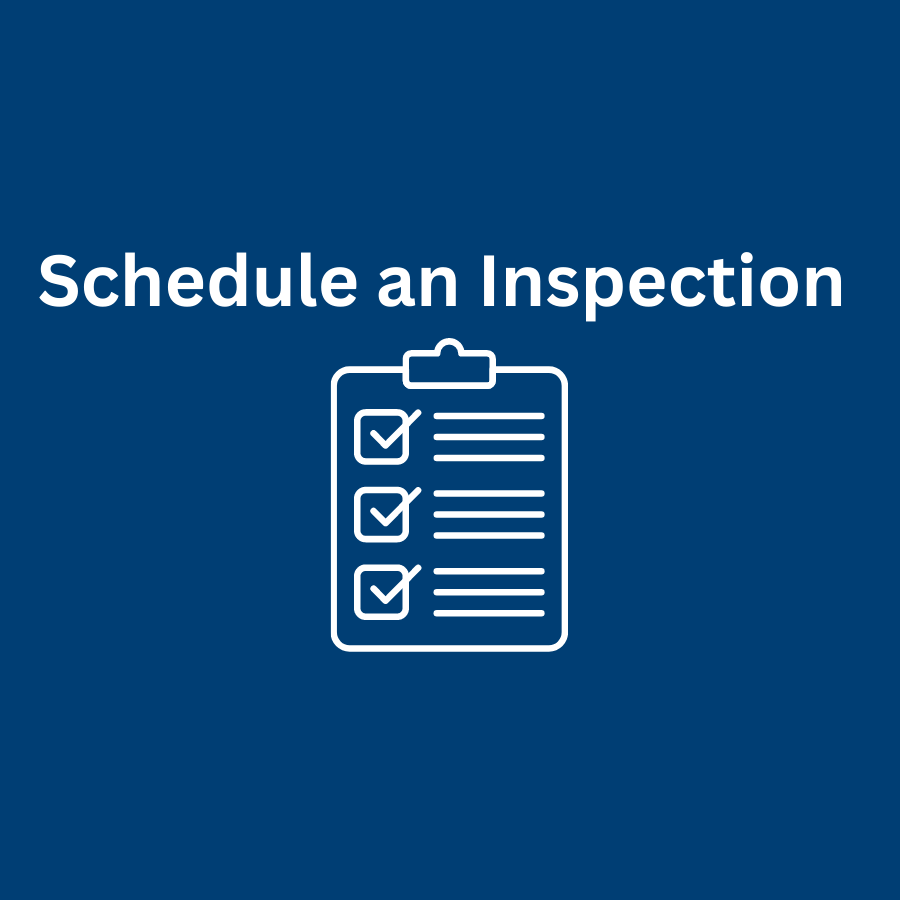

Schedule a Home Inspection Before Buying
Home inspections are typically conducted during the selling process when a buyer wants to get an in-depth look at the property before investing.
While home inspections are not required by most lenders, they are a good idea to ensure that there aren't any costly problem areas or red flags that stand out, like a failing furnace or air conditioning system.
Generally, a home inspection will take about two to three hours to complete.
Call Anytime: 760-875-8008
More About Home Inspections
-

What Is a Home Inspection?
Schedule Your Inspection NowA person who is interested in buying a house will typically hire a professional home inspector to conduct a thorough evaluation of the exterior and interior of the home to ensure they are not investing in a property with hidden issues.
Home inspectors focus on examining the major components of the home, including the foundation, plumbing, electrical, and home systems, but they do not note cosmetic defects, like chipped or faded paint. While a home inspection is not required in most instances, some mortgage lenders may request a home inspection if the purchase price is notably higher than the price of the listing or if they have other concerns about the value of the property.
-

What Do Home Inspectors Look For?
Schedule Your Inspection NowWhen a home inspector is walking around the outside of the home and combing through every room inside the home, they are examining the major components of the property.
- Exterior inspections will generally involve the inspector checking the foundation, roof, windows, doors, gutters, garage, patios, decks, sidewalk, driveway, and irrigation system.
- Interior inspections focus on the major home systems, like the furnace, water heater, and air conditioner, but home inspectors will also look at the plumbing lines, electrical, ceilings, floors, interior walls, basement, and appliances.
-

How Long Does a Home Inspection Take?
Schedule Your Inspection NowIn most cases, a home inspection for an average-sized property will take about two to three hours to complete. Even with a pair of inspectors, the inspection process will still take about 90 minutes to complete.
Homes that are larger than 2,000 square feet can add to the total duration of the inspection, with every additional 500 square feet of space requiring an extra 30 minutes to inspect.
Due to the potential for a follow-up appointment, discuss the expected duration with the inspector before hiring them.
-

How Much Does a Home Inspection Cost?
Schedule Your Inspection NowThe prospective buyer is typically responsible for the cost of a home inspection, though they may have their realtor handling the booking. On average, a home inspection can cost between $200 to $600. The final price depends on several key factors, including the size of the home, the location of the property, and the depth of the inspection report.
-

When Does a Home Inspection Happen?
Schedule Your Inspection NowA home inspection can take place at any time. Homeowners that want to get to know their home better can hire an inspector to conduct a thorough investigation of the property to uncover any hidden problems. However, most home inspections will take place when the home is put up for sale.
After the seller has accepted an offer on the property, but before the final sale of the house, the buyer will be able to schedule a home inspection appointment. Depending on the results of the home inspection, the buyer may need to renegotiate the terms of the sale to ensure they are not stuck with a poor investment.
-

What Happens After a Home Inspection?
Schedule Your Inspection NowOnce the home inspection is complete, the inspector will compile their findings in a home inspection report. When the buyer receives the inspection, they can review it with their real estate agent and use the details to renegotiate the terms of the purchase.
Buyers may ask the seller to complete specific repairs or may decide to negotiate a lower price, taking into account the necessary investment to fix any outstanding issues. In some cases, the inspection report may even provide grounds for an offer withdrawal, especially if the buyer had a contingency in the purchase agreement that covered the total cost of repairs.
Home Inspection Red Flags
When the buyer receives the home inspection report, they should review it with their realtor to identify any problem areas, like the roof, foundation, gutters, windows, doors, electrical, plumbing, and appliances.
- Roof replacement is one of the more costly repairs a new homeowner may encounter, so if the inspection report notes that the roof is poorly maintained with missing shingles and areas where water pools, the home may not be worth the investment.
- Foundation problems, like major cracks, sunken areas, or evidence of moisture issues should be brought up with the seller to ensure repairs are completed before purchase.
- Windows and doors that are warped, ill-fitting, broken, or poorly sealed can indicate that the home has low efficiency, leading to higher energy bills. Discuss repairs or potential price negotiations to handle this issue.
- Gutter systems are designed to protect the sides of the home and the foundation, so if the home inspection notes that the gutter system is in poor condition, this is a clear red flag that should be addressed with the seller.
- Pest infestations, such as termites, squirrels, mice, or rats, should be taken care of by the seller before the sale is finalized. However, buyers need to be aware that pest issues may reoccur if they do not take preventative steps to stop the pest from returning.
- Electrical issues, like faulty wiring or an outdated electrical panel, can indicate serious problems with the home. Buyers are recommended to discuss these issues with their realtor before deciding whether to proceed with the purchase of the home.
- Plumbing problems are also a significant issue due to the potential for hidden damage. A simple leak can be fixed up easy enough, but if that pipe has been leaking behind a wall for years, there is a high chance of mold, rot, and water damage.
- Appliances that are outdated or in poor condition can be a costly problem to fix. Especially major home systems, like the furnace, air conditioner, boiler, or water heater. Work with the seller to renegotiate the price or ask for the appliances to be repaired or replaced before finalizing the purchase.
- Asbestos and mold should also be noted and addressed if they appear on the inspection report. Mold remediation tends to be less expensive than asbestos removal, but it is still a costly process that the buyer doesn't want to be on the hook for after purchasing a new home.






